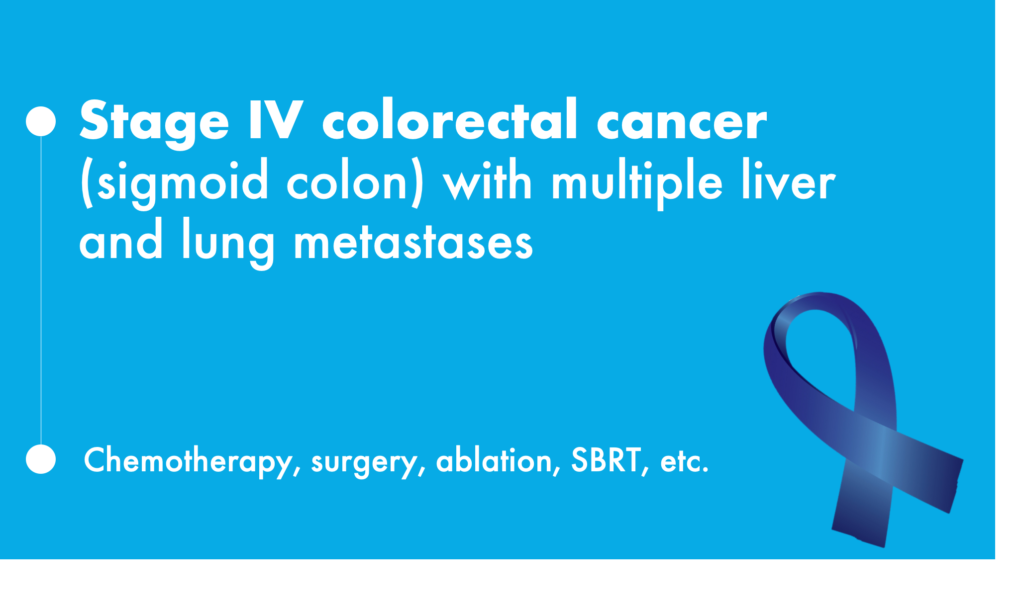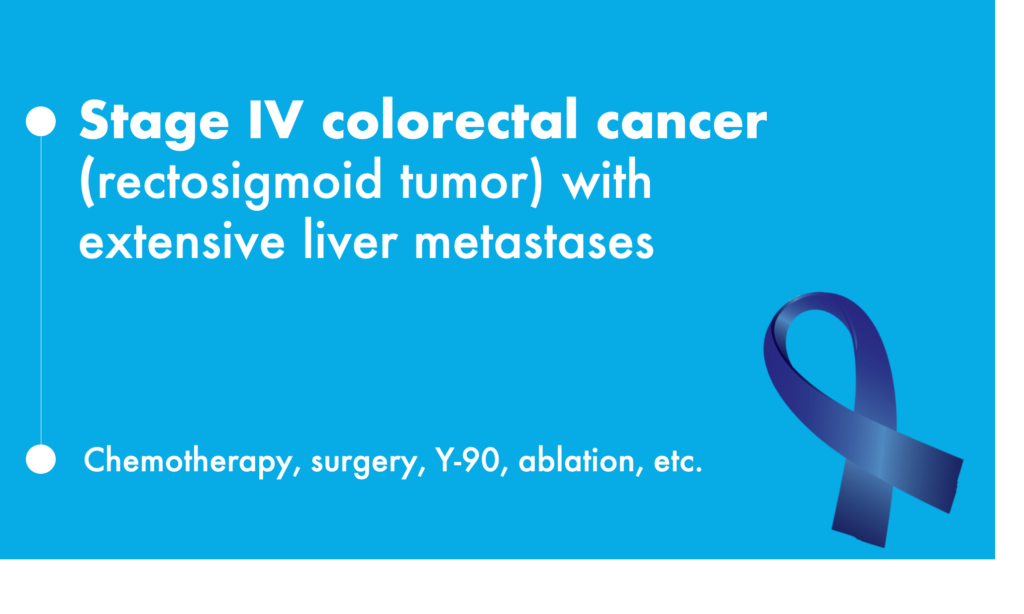Journey of Resilience
A Young Patient’s Journey from Advanced Lung Cancer to Stability
Overcoming Stage IV Large Cell Lung Cancer with Chemo-Immunotherapy
In early 2020, a 30-year-old male non-smoker began experiencing a persistent cough with occasional bloody sputum. A CT scan revealed a mass in the left upper lung, widespread lymphadenopathy, and multiple high-density nodules. Tumor biomarkers NSE and CA125 were elevated, suggesting malignancy. Further imaging confirmed tumor thrombus in the pulmonary artery and metastases in the lungs, adrenal gland, and lymph nodes, leading to a diagnosis of stage IV large cell lung cancer (LCLC).
Next-generation sequencing (NGS) showed no driver mutations in key genes such as EGFR, ALK, or ROS1, limiting targeted therapy options. Immunohistochemistry revealed low PD-L1 expression (5-10%) and low CD8+ T-cell infiltration, influencing the treatment strategy.
The patient initially received chemotherapy with pemetrexed, lobaplatin, and endostar. However, follow-up scans showed disease progression, including new metastases in the neck and worsening lung involvement. Given these setbacks, doctors opted for a more aggressive approach, switching to a combination of pembrolizumab (immunotherapy) with paclitaxel and cisplatin (chemotherapy).
After just one cycle of the new regimen, the patient’s symptoms improved significantly, lymph nodes shrank, and tumor markers declined. Continued treatment led to further tumor reduction and disease stabilization. By June 2020, imaging confirmed partial response, and tumor markers returned to normal levels.
Following five cycles of combination therapy, the primary lung lesion showed slight progression while other metastases continued to shrink. In August 2020, the patient transitioned to pembrolizumab monotherapy for maintenance treatment, maintaining stable disease without significant side effects.
By November 2020, the patient remained stable with continued immunotherapy. The response to treatment demonstrated the potential of chemo-immunotherapy in managing advanced LCLC, even in cases with limited biomarker-driven treatment options.
Diagnosis
Stage IV large cell lung cancer with metastases to lungs, adrenal gland, and lymph nodes
Biomarker profile: Low PD-L1 expression, no driver mutations
Treatment
Initial chemotherapy followed by chemo-immunotherapy (pembrolizumab + paclitaxel + cisplatin), later transitioning to maintenance immunotherapy
Outcome
Disease stabilization with significant tumor shrinkage and continued tolerance to immunotherapy
Source: Wang, G., Chai, Q., Xiao, Y., Peng, W., Teng, M., Wang, J., … & Wu, L. (2021). Case report: therapeutic response to chemo-immunotherapy in an advanced large cell lung carcinoma patient with low values of multiple predictive biomarkers. Frontiers in Immunology, 11, 607416.


